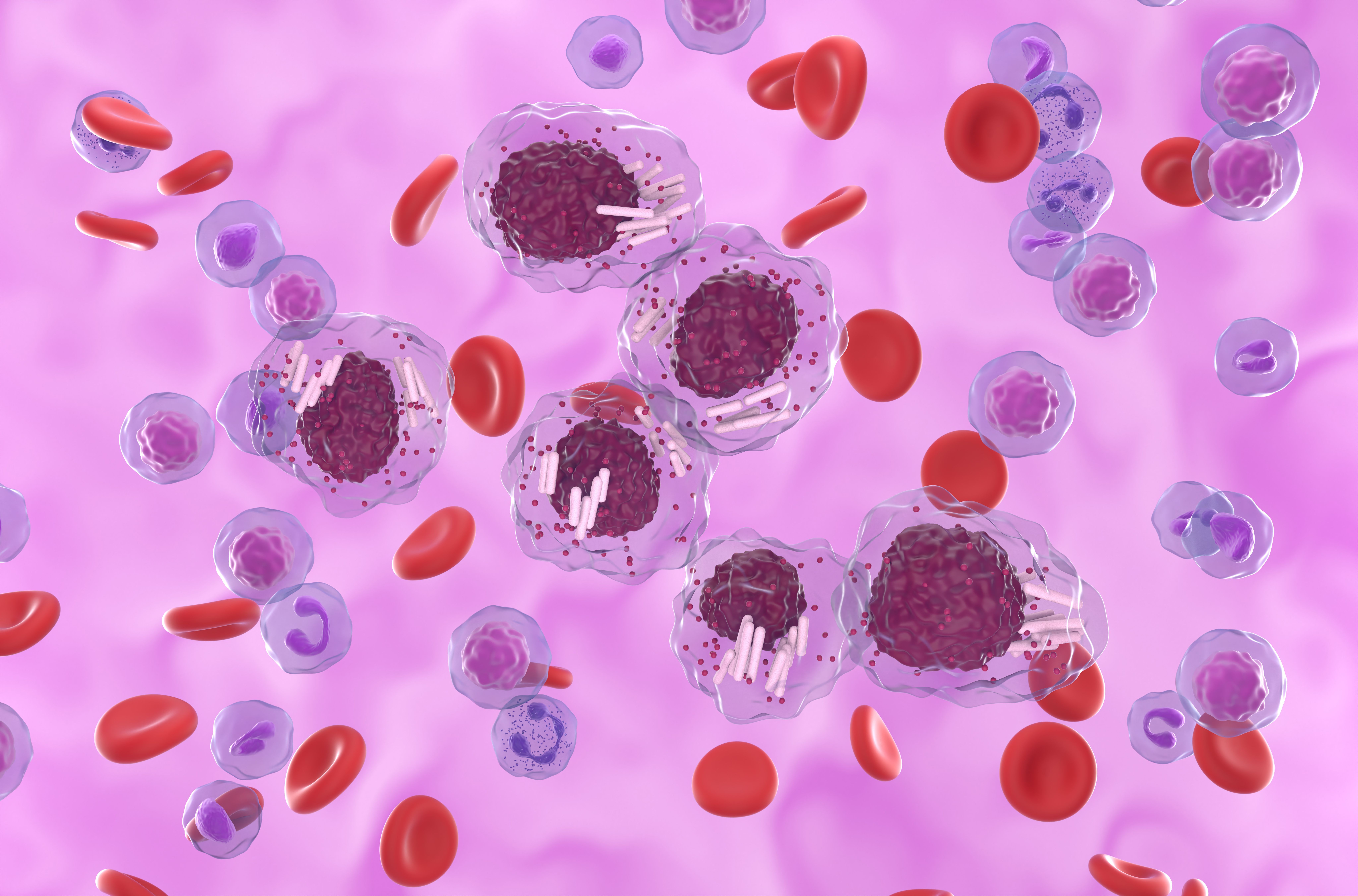News
Article
BTK Degrader NX-2127 May Be Therapeutic for Patients With CLL Who Are Drug-Resistant
Author(s):
Approximately 41% of enrolled patients responded to NX-2127, and the BTK degrader overcame resistance to nearly all BTK mutations that were identified to cause resistance.
According to findings published in Science, a next-generation Bruton’s tyrosine kinase (BTK) degrader that can potentially overcome treatment resistance in chronic lymphocytic leukemia (CLL) and other blood-related cancers has been identified. The BTK degrader can serve as a therapeutic option for patients with CLL whose tumors are unresponsive to frontline treatment or are drug-resistant.
Image credit: LASZLO | stock.adobe.com

CLL is a cancer of the blood and bone marrow without a cure. It makes up approximately 25% of new leukemia cases, primarily affecting older adults, with an average age at diagnosis of 70 years. Patients who are diagnosed with CLL are typically prescribed BTK inhibitors which can shrink tumors and ease symptoms, extending lifespans; however, some patients develop drug resistance, which can limit their options for therapies.
“This new compound not only inhibits the cellular molecule BTK, but goes further by taking aim at the target and destroying it,” said senior study author Justin Taylor, MD, hematologist-researcher, Sylvester Comprehensive Cancer Center, University of Miami Miller School of Medicine, in a press release. “It’s a new and exciting drug class called BTK degraders.”
Furthermore, currently approved drugs such as ibrutinib deactivate the cellular molecule BTK; however, ibrutinib and other approved inhibitors don’t destroy the targets, and instead bind to them and restrain activity. In addition, these treatments can bind to the BTK enzyme that keeps B cells alive in leukemia, which hinders BTK’s activity and leads to B-cell death in CLL and other blood cancers.
The study investigators assessed a compound, NX-2127, in prior studies and a phase 1 clinical trial that involved patients with tumors that became drug-resistant or were unresponsive to therapy. The compound consists of 2 modules that bind to BTK and that degrade and eliminates BTK. The investigators refer to it as a BTK degrader.
The researchers noted that NX-2127 was efficient in destroying its cellular targets in both petri dishes and in patient cells. Particularly, 1 patient who had been on pirtobrutinib for 2 years but was resistant to it in addition to other therapies was noted to have a notable response to the BTK degrader. The investigators note that the patient’s quality of life and adverse effects he experienced were improved and he no longer needed transfusions for anemia.
“…this compound destroyed BTK cells in tumors resistant to currently used BTK inhibitors, while shrinking tumors in 11 of 14 CLL patients participating in our study,” said co-corresponding author Omar Abdel-Wahab, MD, graduate student, Memorial Sloan Kettering Cancer Center, in the press release.
According to the authors, approximately 41% of patients enrolled in the study had responded to NX-2127, and the compound overcame resistance to nearly all BTK mutations that were identified to cause resistance available to BTK inhibitors. In addition, the mutations caused BTK to operate as a framework that “recruits” other cellular molecules, keeping B cells alive.
The authors are optimistic that BTK degraders have the potential to treat other B-cell-related malignancies as well as autoimmune conditions (eg, multiple sclerosis). Currently, the investigators are enrolling patients in an additional study which will test NX-5948, a stronger and more selective BTK degrader.
“CLL is an incurable disease, but with treatments like BTK inhibitors and these promising new BTK degraders, we have more ways to alleviate symptoms and get patients back to their normal everyday routines,” said first author Skye Montoya, PhD student, Sylvester Comprehensive Cancer Canter, in the press release. “The future looks brighter for them.”
Reference
University of Miami Miller School of Medicine. Targeting treatment resistance in chronic lymphocytic leukemia. News release. February 1, 2024. Accessed February 2, 2024. https://www.eurekalert.org/news-releases/1032636
Newsletter
Stay informed on drug updates, treatment guidelines, and pharmacy practice trends—subscribe to Pharmacy Times for weekly clinical insights.






